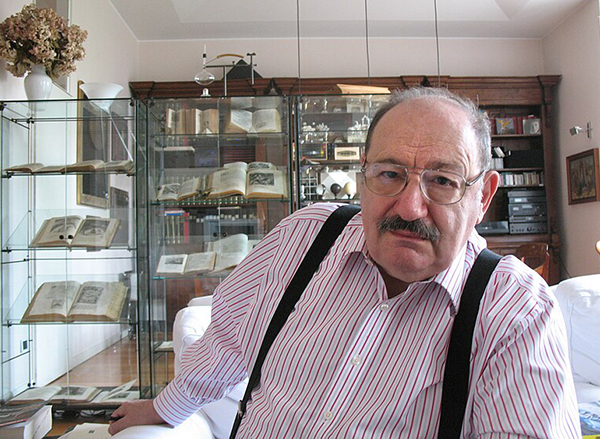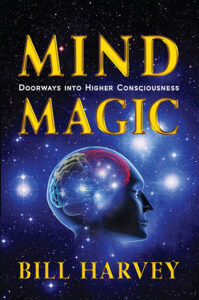Powerful Mind Part 4
Originally posted March 31, 2023
Welcome to this week’s Bill Harvey Blog, August 9, 2024

Most people would agree that it would have been handy to have been given a User’s Guide when born. Remember the takeoff on the Emergency Broadcast System?
This life is a test. It is only a test. Had this been an actual life, you would have received further instructions as to what to do and where to go.
Such a guide would have to start very simply, since the child at birth will not process anything complicated. It might start out like this:
Hi! Your name is ________. But YOU are much more than your name. You are a living being in a vast, mostly-unknown universe. You are a member of the dominant life form on the planet. You became dominant because you’re the smartest. That means you know how to use your mind.
Q. So what IS your mind? Are you and your mind the same thing?
A. Yes and no. You are your mind. But remember, “mind” is just a word; it depends on how you define it exactly.
One way of defining “mind” – the way we define it – is everything you experience, your consciousness, your awareness. Other definitions say the “mind” is just the “intellect” and does not include the feelings, intuition, perceptions, imagination, memory, willpower, or ESP we might experience. If you follow either of these definitions then You are more than your mind, as defined, since you do have all these other things.
Q. Waah! Want Mama! All these other what things? You’re saying I’m made up of all these things, and I won’t even know what these things are that make up who I am.
A. No problem, let’s go over the list. These are among all the good things you have, going in:
- You will have the persistent sense of being you – we call that the “Self”.
- You will have attention.
- You will have feelings – some good, some not so good; you may learn how to re-set yourself back to good feelings, by solving specific small and larger challenges in your life; over time you may learn how to re-set to good feelings faster. Confidence is a feeling, as is lack of it. This list of feelings goes on. You’ll see.
- You will have five physical senses – sight, sound, taste, touch, and smell.
- You will have hunches – intuition. By following these hunches and using the rest of what you have, you will be able to predict the future, but only imperfectly.
- You will have memory.
- You will be able to generate imagined stories and experience them, called dreams when you are sleeping, and imagination when you are (relatively) awake.
- You will decide that things have to be a certain way and you will do things that tend to cause that outcome; this is called willpower.
- Free will. This means you can make up your own mind. And you can do whatever you decide to do, but you must accept the consequences, meaning it will be wise to think out consequences before you act. You’ll need something else for that, something that none of these first eight parts of you can do.
- Hence, the intellect. This part of you is the thinker, the part of you that can take apart a situation into pieces and thereby better understand it. This part can also make plans, always a good thing to do before taking action. This is also the part you are hearing or seeing whenever you hear or see words in your head. And it’s the part that most helps the intuition when it comes to making predictions.
- Motor control (and body). You will be able to move the body you are currently inhabiting as you will it (unless you become intoxicated or are otherwise physically challenged). You use this body of yours, and the motor control that you have over it, to take actions in the world that appears to exist outside and around you, to relate to what appear to be other selves.
- ESP. You will discover for yourself whether these exist for you or not. These are Extra Sensory (meaning “extra” to the first five) Perceptions. Telepathy, precognition (greatly improved ability to make accurate predictions), telekinesis, gaining additional influence over outcomes “as if by magic”.
- Spirit. This is the part of you that feels like a part of Something much larger. There is much for you to discover by exploring this asset, and the same can be said for all thirteen of your assets, aspects, faculties, manifestations, whatever you choose to call them.
Q. This is a mindblower – what a trip! How can I manage 13 parts of myself and keep it all coordinated?
A. Don’t overthink it. The rational mind is not designed to consciously control all parts of you. If you try to use the rational mind that way, you won’t even be able to catch a ball. Be spontaneous and natural, so long as you are careful at all times to not hurt other people’s feelings or their bodies. You will have to discriminate carefully and quickly, all the time, to decide which of your impulses to follow, and which ones to hold in check. If you are unsure or there is any negative feeling, don’t act too quickly. Be spontaneous and go with your own flow, but be prepared to take control and stop yourself from getting yourself in trouble. This means both hands on the wheel of yourself. Pay attention. And never forget to be on your own side.
At the first unpleasant feeling, stop what you’re doing, and figure out why that was unpleasant, and how to make it more pleasant “next time”. Don’t take the alternative course of just bypassing those little clues, suffering the unpleasantness without understanding it fully. These imperfections pile up and eventually, you are looking at a full-scale problem, and what seems like a million unanswered questions in your head.
In reality, if your life goes along like most peoples’ lives in the 21st century, you will probably reach a point of pile-up and possible breakdown, and fortunately, that challenge will bring you back to start over, to figure things out for yourself.
Always come back to who you are. We pick up mannerisms and other behavior patterns from other people and these conditioned behaviors are like a short circuit between motor control and memories. Memories of what you have seen other people do or say program your body without your agreeing to it consciously. Be alone and use all parts of yourself to figure out what has gone wrong and how to fix it.
Love to all,
![]()




 “When you are about to see something, your mind automatically searches your memory for a comparable object (note the distinction between you seeing something and your mind having already seen it). If your mind finds something similar enough, it projects the stored image onto the new object so that you do not ever see the new object, but are merely dimly aware that there is a familiar type of object there… As a result of this, you mostly do not perceive your environment, instead perceiving mostly what you expect to perceive, i.e. you usually see your mind’s prediction.”
“When you are about to see something, your mind automatically searches your memory for a comparable object (note the distinction between you seeing something and your mind having already seen it). If your mind finds something similar enough, it projects the stored image onto the new object so that you do not ever see the new object, but are merely dimly aware that there is a familiar type of object there… As a result of this, you mostly do not perceive your environment, instead perceiving mostly what you expect to perceive, i.e. you usually see your mind’s prediction.”